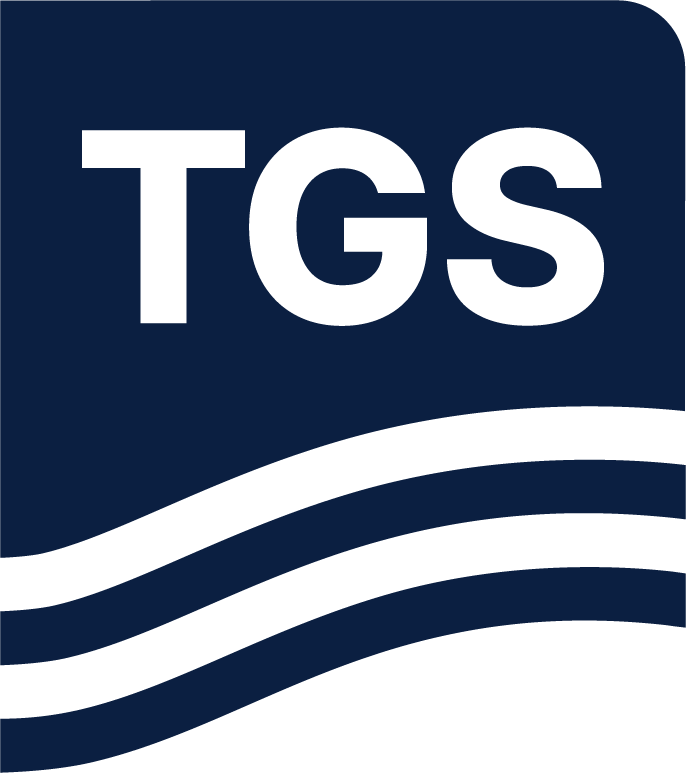OSLO, Norway (10 February 2022) - TGS today reported interim financial results for Q4 2021.
Net IFRS revenues amounted to USD 105 million in Q4 2021, compared to USD 143 million in Q4 2020. EBITDA was USD 69 million, and the operating result was USD -101 million, compared to USD 127 million and USD -25 million, respectively, in Q4 2020.
Net segment revenues (1) amounted to USD 120 million in Q4 2021, the same as in Q4 2020. Segment EBITDA was USD 84 million versus USD 104 million in the same quarter of 2020, while the segment operating result amounted to USD -88 million compared to USD -68 in Q4 2020. The results include impairments of the multi-client library of USD 97 million.
Free cash flow (2) amounted to USD 55 million in Q4 2021, up from USD 28 million in Q4 2020. After shareholder distribution of USD 19 million, the cash balance totaled USD 215 million on 31 December 2021 versus USD 196 million a year earlier. For the full year of 2021 free cash flow (2) amounted to USD 162 million, up from USD 14 million in 2020.
The solid financial position allows TGS to maintain the quarterly dividend at USD 0.14 per share and continue its share repurchase program with a remaining value of up to USD 4.3 million.
“Although the multi-client market remains at a low level in a historical perspective, we have seen several positive signs of improvement lately, and the sales momentum in Q4 2021 was better than previous quarters. This is further underlined by the strong order inflow of more than USD 160 million experienced during the quarter,” says Kristian Johansen, CEO of TGS. “Our clients are currently experiencing record high cash flow and have indicated significant E&P spending increases for 2022. Recent conversations with key customers indicate that this should impact seismic spending positively. The more positive market outlook along with our strong balance sheet, allow us to increase our multi-client investments for 2022.”
A live webcast of the results and business update, featuring CEO Kristian Johansen and CFO Sven Børre Larsen, will be broadcasted today at 9:00 am CET.
Access and registration for online attendees is available by copying and pasting this link into your browser: https://channel.royalcast.com/landingpage/hegnarmedia/20220210_9/
A recorded version of the entire presentation will be available on TGS.com after the live event.
For more information, contact:
Sven Børre Larsen
CFO
Tel: +47 90 94 36 73
E-mail: investor@tgs.com
Notes
1 - IFRS versus Segment Reporting:
The main difference between IFRS and Segment reporting relates to revenue recognition. Under IFRS revenue recognition generally is deferred until project completion and delivery to the customer when performance obligations are met. Under Segment reporting, net revenue from projects-in-progress is recognized based on Percentage of Completion (POC). Revenue recognition has subsequent effects on the recognition of amortization of the multi-client library. Please see annual report for a complete description of the Company's accounting principles.
Adjustments between IFRS and Segment revenue numbers for Q4 2021:
IFRS reported revenue: USD 105 million
- Revenue recognized from performance obligations met during Q4 for completed projects: USD 40 million
+ Revenue recognized under POC during Q4: USD 55 million
= Preliminary net segment reported revenue: USD 120 million
Differences in EBIDTA and operating result between IFRS and segment reporting are caused by the aggregate differences in revenues and the resulting impact on amortization.
2 - Defined as Cash flow from operations after investments in the multi-client library.
About TGS
TGS provides scientific data and intelligence to companies active in the energy sector. In addition to a global, extensive and diverse energy data library, TGS offers specialized services such as advanced processing and analytics alongside cloud-based data applications and solutions.
Forward Looking Statement
All statements in this press release other than statements of historical fact are forward-looking statements, which are subject to a number of risks, uncertainties and assumptions that are difficult to predict, and are based upon assumptions as to future events that may not prove accurate. These factors include TGS' reliance on a cyclical industry and principal customers, TGS' ability to continue to expand markets for licensing of data, and TGS' ability to acquire and process data product at costs commensurate with profitability, as well as volatile market conditions, which have been exacerbated by the COVID-19 pandemic and the severe drop in oil prices. Actual results may differ materially from those expected or projected in the forward-looking statements. TGS undertakes no responsibility or obligation to update or alter forward-looking statements for any reason.

